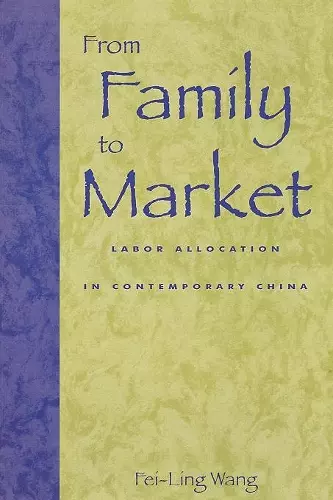From Family to Market
Labor Allocation in Contemporary China
Format:Paperback
Publisher:Rowman & Littlefield
Published:26th Mar '98
Currently unavailable, and unfortunately no date known when it will be back

This book analyzes Chinese history, politics, and economic development through the lens of labor allocation within the world's largest workforce. Capturing the peculiarities, continuities, and changes in the PRC's institutional structure, Fei-Ling Wang examines the segmented nature of China's labor force today. He points to the rare coexistence of four 'labor allocation patterns:' the traditional family-based system, authoritarian state allocation, community-based labor markets, and the emerging national labor market. China's enduringly stable yet backward institutional structure was based firmly on a mix of family and state institutions; now the addition of market forces highlights the PRC's transitional state. Bolstered with rich case-study detail and Chinese source material, this study argues that the development of labor allocation patterns will profoundly influence China's political and economic development in the coming century.
Wang describes patterns of labour in great detail. ..the descriptions of community -based labour allocation are interesting.. A focus of attention on labour alloction patterns may be useful in understanding China's political and economic institutions. -- Yanjie Bian, University of Minnesota * The China Journal, January 2000 *
Wang describes patterns of labour in great detail. ..the descriptions of community -based labour allocation are interesting.. A focus of attention on labour alloction patterns may be useful in understanding China's political and economic institutions. -- Yanjie Bian, University of Minnesota * The China Journal, January 2000 *
ISBN: 9780847688807
Dimensions: 225mm x 149mm x 21mm
Weight: 476g
368 pages